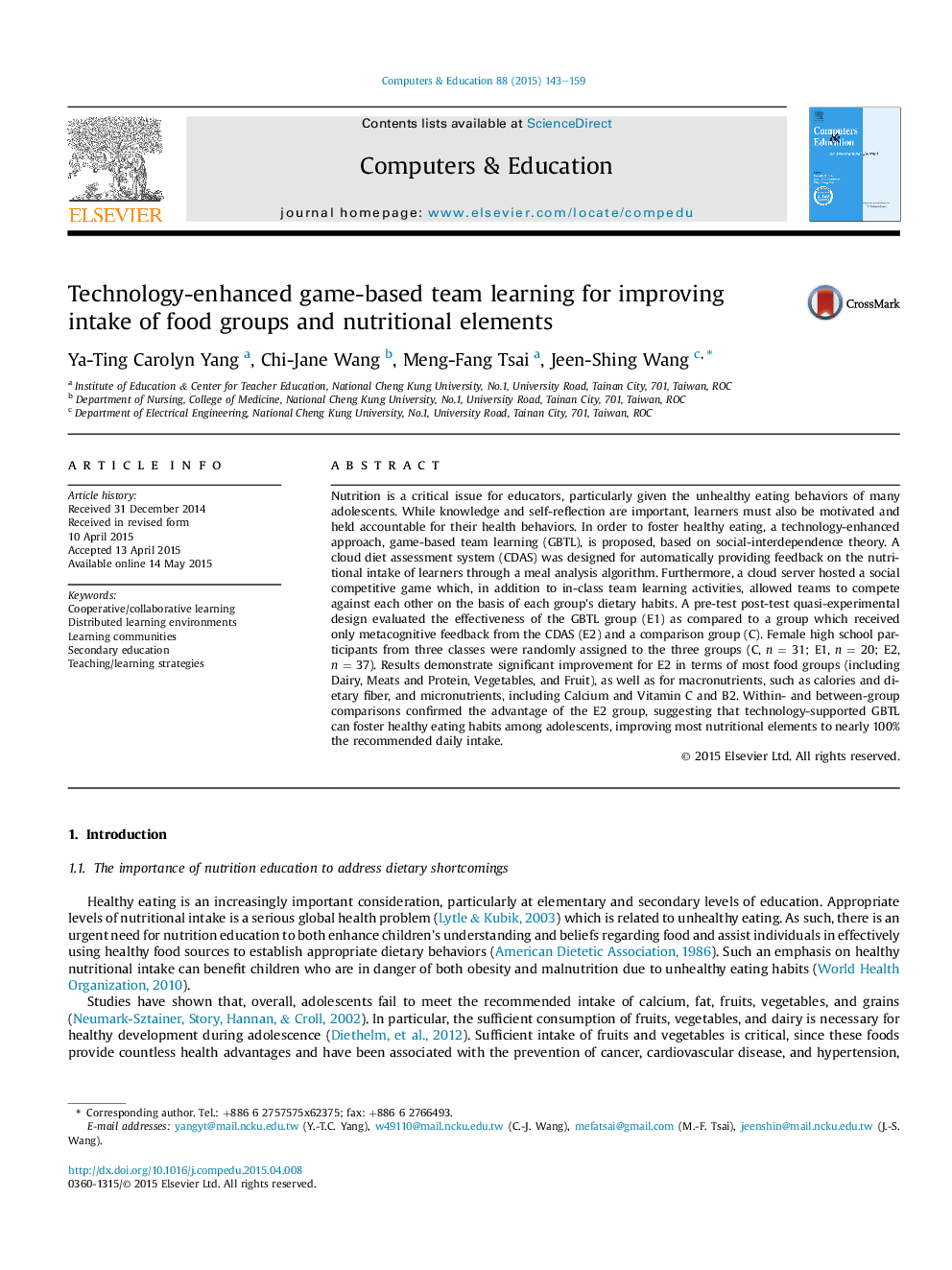| Article ID | Journal | Published Year | Pages | File Type |
|---|---|---|---|---|
| 6834970 | Computers & Education | 2015 | 17 Pages |
Abstract
Nutrition is a critical issue for educators, particularly given the unhealthy eating behaviors of many adolescents. While knowledge and self-reflection are important, learners must also be motivated and held accountable for their health behaviors. In order to foster healthy eating, a technology-enhanced approach, game-based team learning (GBTL), is proposed, based on social-interdependence theory. A cloud diet assessment system (CDAS) was designed for automatically providing feedback on the nutritional intake of learners through a meal analysis algorithm. Furthermore, a cloud server hosted a social competitive game which, in addition to in-class team learning activities, allowed teams to compete against each other on the basis of each group's dietary habits. A pre-test post-test quasi-experimental design evaluated the effectiveness of the GBTL group (E1) as compared to a group which received only metacognitive feedback from the CDAS (E2) and a comparison group (C). Female high school participants from three classes were randomly assigned to the three groups (C, n = 31; E1, n = 20; E2, n = 37). Results demonstrate significant improvement for E2 in terms of most food groups (including Dairy, Meats and Protein, Vegetables, and Fruit), as well as for macronutrients, such as calories and dietary fiber, and micronutrients, including Calcium and Vitamin C and B2. Within- and between-group comparisons confirmed the advantage of the E2 group, suggesting that technology-supported GBTL can foster healthy eating habits among adolescents, improving most nutritional elements to nearly 100% the recommended daily intake.
Keywords
Related Topics
Social Sciences and Humanities
Social Sciences
Education
Authors
Ya-Ting Carolyn Yang, Chi-Jane Wang, Meng-Fang Tsai, Jeen-Shing Wang,
